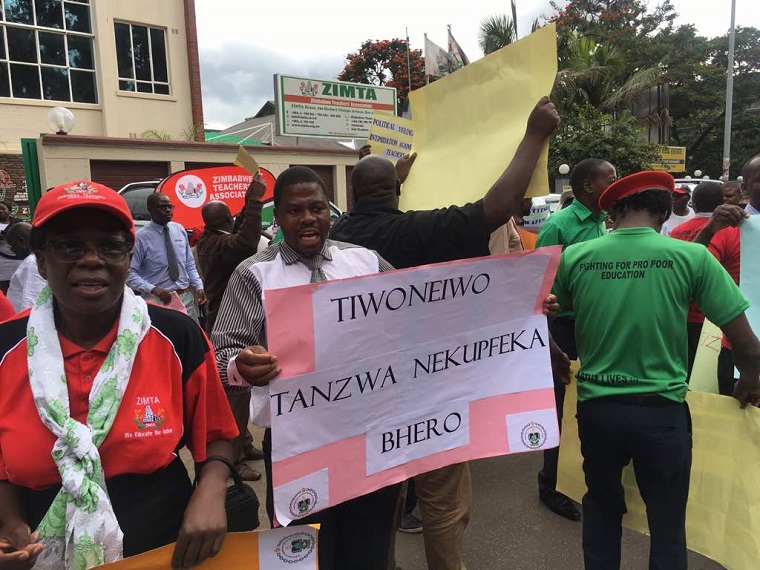 A former teacher, whose wife is still teaching, has come up with an interesting theory on why Zimbabwe’s teachers’ unions are insisting that teachers should be paid in United States dollars.
A former teacher, whose wife is still teaching, has come up with an interesting theory on why Zimbabwe’s teachers’ unions are insisting that teachers should be paid in United States dollars.
While it is true that the US dollar has become a store of value and the preferred currency by most people, the former teacher said one of the main reasons why unions want teachers paid in US dollars is that they will not question their union leaders’ hefty salaries in the greenback since everyone will be earning US dollars.
Though this appears to be a far-fecthed explanation, while unions are pressing for a starting salary for teachers of US$540, one union leader was reported to be earning US$3800 a month, a salary seven times that of a teacher, but with allowances his monthly salary came to US$10 891, enough for 20 teachers.
Salaries of union officials should come from membership subscriptions but apparently they are not. According to Education spokesman Taungana Ndoro, Zimbabwe has 145 000 teachers. The biggest union, the Zimbabwe Teachers Association reportedly has 41 000 members. Ndoro said the most vocal union, the Amalgamated Rural Teachers Union of Zimbabwe has 386 members while the Zimbabwe National Teachers Union has only 50 members.
Zimbabwe now has about 10 teachers unions.
How then do the unions survive? Through western donors. And donors are not mother Theresa. Teachers have to push their agenda to get the funding.
A British junior minister, Lord Ahmad of Wimbledon, told the House of Lords three months ago that the British government was working with teachers unions. This is on record, in Hansard. He had been asked why the government was not working with unions to put pressure of the Zimbabwean government.
He responded: “My Lords…..We certainly have been meeting in Harare with various unions, including teaching unions, most recently in September 2021 on salaries and the impact of Covid-19. Trade unions form an important part of civil society in any country, and we engage with them at all levels.”
Continued next page
(183 VIEWS)

